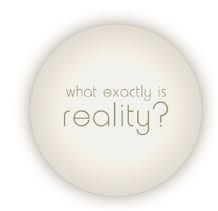
Arquivo para October 18th, 2016
Metaphysics and philosophy of history
Deepening of Heidegger in the classical antiquity, Plato and  Aristotle, the scholastic Augustine of St. Thomas, and the reading of Kant, Hegel and even idolized her master Husserl, was the German academy of the 1950s, at the end of the 2nd. World War II, “get fully way and not retain anything of what until then was shown as valid” (Gadamer, p. 306), and this happened “in that Heidegger accept the Aristotelian critique of good idea and turned to fruitfully, particularly stressing the Aristotelian concept of analogy “(Gadamer, p. 307).
Aristotle, the scholastic Augustine of St. Thomas, and the reading of Kant, Hegel and even idolized her master Husserl, was the German academy of the 1950s, at the end of the 2nd. World War II, “get fully way and not retain anything of what until then was shown as valid” (Gadamer, p. 306), and this happened “in that Heidegger accept the Aristotelian critique of good idea and turned to fruitfully, particularly stressing the Aristotelian concept of analogy “(Gadamer, p. 307).
Do not do this without the necessary historical update on the issue of historical consciousness introduced by Hegel, where “the Hegelian conception of history of philosophy he was already quite like philosophy, as a separate part within the philosophy of history, which sought to demonstrate in turn the presence of reason also in history (Gadamer, 399).
Ontological resumption of Heidegger, should resume the language of metaphysics as a question, and in a way confused with Hegel asks so Gadamer, “will be the new radicalism with which Heidegger aroused the oldest philosophy of questions for a new present to conclusive figure of Western metaphysics …? or will that was the circle of reflection philosophy that paralyzed all hope of freedom and liberation and forced Heidegger’s thought to take over your life? “(Gadamer, p. 307).
It should be as answers Gadamer, on the one hand share with Hegel the host of the story at the very point of philosophical departure, and other “secret dialectic and not unraveled, which is embedded in all the essential statements of Heidegger” (Gadamer, p . 308).
In the thought of temporal Heidegger the man, he “seems to claim for himself a genuine historical self-consciousness, yes, even a self escotologicamente* marked” (Gadamer, p. 308).
The second critical issue, pointed out by Gadamer in the work of Heidegger, it is what is called as “being” and seeks to interpret the tautology of being that is immediate mediation, which according to Gadamer would be a “second immediacy concealed” (Gadamer, p. 309)
But the central question that refers to the subject of the metaphysical language, is to resume the Aristotelian question of Leibniz and Schelling, “because there’s before the one and not before anything?” “What is the being of beings” remaking it as a matter fundamental for the current ontological existentialism.
Gadamer, H. G. Hegel, Husserl, Heidegger. Petrópolis, RJ: Vozes 2012. (Brazilian edition)
* Eschatological – what is the ultimate end of humanity, or what you have as the ultimate in self-awareness as intended Heidegger.

